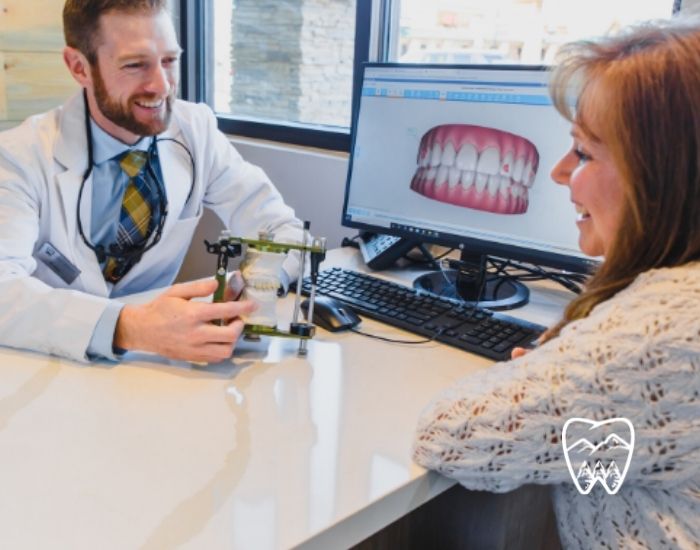Dental Plaque Removal

Dental Plaque Removal And Your Health
When germs in the mouth combine with sweet or starchy meals, a sticky film develops on the teeth. Plaque is removed from the teeth by brushing and flossing. If plaque is not removed, it hardens into tartar. Cavities, gingivitis (gum disease), and tooth loss can all be caused by plaque. Dental exams regularly eliminate plaque and safeguard teeth.
What Exactly Is Plaque?
Plaque is a sticky coating of germs that grows on teeth. After you eat or drink, bacteria in plaque make acids. These acids can erode tooth enamel, resulting in cavities and gingivitis (gum disease).
Plaque can also form behind the gums on tooth roots, weakening the bones that support teeth. Left untreated plaque can harden into difficult-to-remove tartar. Plaque is removed with proper oral care, including frequent brushing and flossing.
What Is The Prevalence of Plaque?
To some extent, everyone has dental plaque. Plaque causes your teeth to feel fuzzy when you run your tongue over them.
Who Is Most Likely To Develop Plaque?
Although plaque occurs in everyone, you may acquire more plaque than usual if you: Drink or eat many sweet or starchy meals. Also, have a dry mouth due to antidepressants or diseases.
Plaque is formed when bacteria in your mouth interact with sweet or starchy foods, including milk, juice, soft drinks, bread, pasta, and fruit. These bacteria produce acids that degrade carbohydrates in food and beverages. If you do not clean your teeth immediately after eating or drinking, bacteria, acids, and carbohydrates can combine to form a sticky, white coating known as plaque.
What Are The Signs And Symptoms of Plaque?
- Chronic halitosis (halitosis)
- Gums are red, swollen, and sensitive after brushing (gum disease)
What Are The Consequences of Plaque?
Plaque can develop into tartar if you do not brush and floss every day. A dentist near you may only remove the tartar. Plaque and tartar can result in cavities.
- Periodontal (gum) disease and gingivitis
- Severe gum infection (periodontitis)
- Tooth deterioration and tooth loss
- Infection of the teeth (abscessed tooth)
How Is Plaque Identified?
During routine dental exams, your dentist or dental hygienist in Parker CO will use devices to detect and remove plaque. Cavities can be caused by plaque. Therefore, dental X-rays may also be taken to check for cavities.
What Is The Best Way To Control or Treat Plaque?
Plaque and tartar accumulation is removed and prevented by good dental care, including frequent brushing and flossing. In addition, the dentist will scrape plaque and tartar off your teeth during a dental exam. Your provider may also suggest:
- Plaque is prevented from growing on the upper chewing surfaces of teeth with dental sealants
- Medication for dry mouth to stimulate saliva production
- Fluoride treatments can help prevent tooth decay by slowing the growth of plaque-causing bacteria
- Antibacterial mouthwash or prescription toothpaste (chlorhexidine)
How Can I Avoid Plaque?
There are a few tips that our friends over at OG Dental the best dentist in Denver CO have that will help you in your daily routine:
Floss once a day: Floss once a day using dental floss or a water flosser to remove food and plaque that has been caught between teeth. Flossing before brushing your teeth eliminates more plaque, according to studies.
Brush your teeth twice a day: Brush your teeth for two minutes using fluoride toothpaste and a soft-bristled toothbrush (manual or powered). Brush your teeth at least twice a day, ideally after each meal.
Chew sugar-free gum: If you can’t brush your teeth right away after eating or drinking, chew sugar-free gum. Select one with the American Dental Association (ADA) seal.
Choose nutritious foods: Reduce your intake of sugary, starchy meals and beverages. Instead, choose healthy foods and snacks like plain yogurt, cheese, fresh veggies, or fruit.
Consult your Parker CO Dentist: Get your teeth checked at least twice a year.
Use mouthwash: Rinse with an antimicrobial mouthwash, either over-the-counter or prescribed.
What Is The Prognosis For Those Who Have Plaque?
Everyone has plaque-causing bacteria in their mouth. Plaque may be removed and significant tooth diseases avoided with appropriate oral care. Regular dental checks are essential because plaque may cause cavities, tartar, and gum disease. If plaque and dental decay are left untreated, you may get a severe gum infection or lose teeth.
When Should I Consult A Dentist?
If you have any of the following symptoms, you should contact your Parker CO Dentist if you are experiencing bad breath that persists, swelling of the face, or Toothache.
Dental plaque is a prevalent issue with a simple solution: Brush and floss your teeth daily, and see your dentist. Antiseptic mouthwashes can also be used to destroy germs that produce plaque. If you leave a layer of plaque on your teeth for too long, it will solidify and harden into tartar. You may eventually develop gum disease and lose teeth. Your teeth should be cleaned at least twice a year. Inquire with your dentist about ways to minimize plaque and safeguard your dental health.
Contact Green Dental Care Today
Our team is here to help with any preventative dental care that you may need to increase your oral health. Call us today if you have any questions about your dental health or if you want to schedule a dental appointment to see one of our experts.

